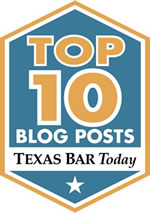The Gilead Antitrust Lawsuits
Gilead has been sued by numerous plaintiffs across the country in alleging that the company was aware of a safer alternative to their popular HIV treatment drugs including Truvada at the time they started marketing them. The Truvada class-action lawsuits over the safer alternative, however, are only one set of lawsuits Gilead currently faces. The Antitrust lawsuits–filed by several HIV activists–allege that Gilead effectively engaged in price-fixing to keep their HIV drugs very expensive.
Antitrust Law and Pharmaceuticals
Developing a new drug requires extensive research and development. Then there is the FDA approval process where they must demonstrate that the drug is worthy of approval and has been sufficiently tested. A company can spend billions developing a new drug and getting it approved.
The cost of developing new drugs acts as an impediment to new discovery. If competitors were permitted to copy and make the drug as soon as a new one was developed, no one would develop new drugs. To reduce this impediment, companies are granted a patent, or exclusive right, to make their drug for a certain time period after developing a new one. This period is often 10 years. During that 10-year period, the drug cost is very high because the company has to recoup its research and development costs. The company effectively gets a monopoly on its drug until the patent expires. But what if they could stop the patent from expiring?
The Price-Fixing Allegations
Along with fellow drug makers Bristol-Myers Squibb and Johnson & Johnson, Gilead has been sued for entering into anti-competitive agreements to prevent generic versions of their drugs’ component—tenofovir–from being produced even after their patents expired. This allowed Gilead to keep the price of their drug high even after their patents expired. Some of the drugs that were allegedly protected by such agreements include:
- Atripla
- Descovy
- Genvoya
- Odefsey
- Truvada
- Stribild
Anticompetitive agreements that monopolize a pharmaceutical after the patent expires are prohibited by law. In some cases, the use of generic HIV treatment drugs can save a patient as much as $15,000.00 per year in treatment costs. When some of those drugs retail for $35000 per year, the profits can seriously add up.
Profit Over People
If the allegations of these lawsuits are proven true, this will be another case of corporate profit being valued over people. It will be interesting to see if the insurance companies that covered these treatments will join in to recoup their costs as well.


